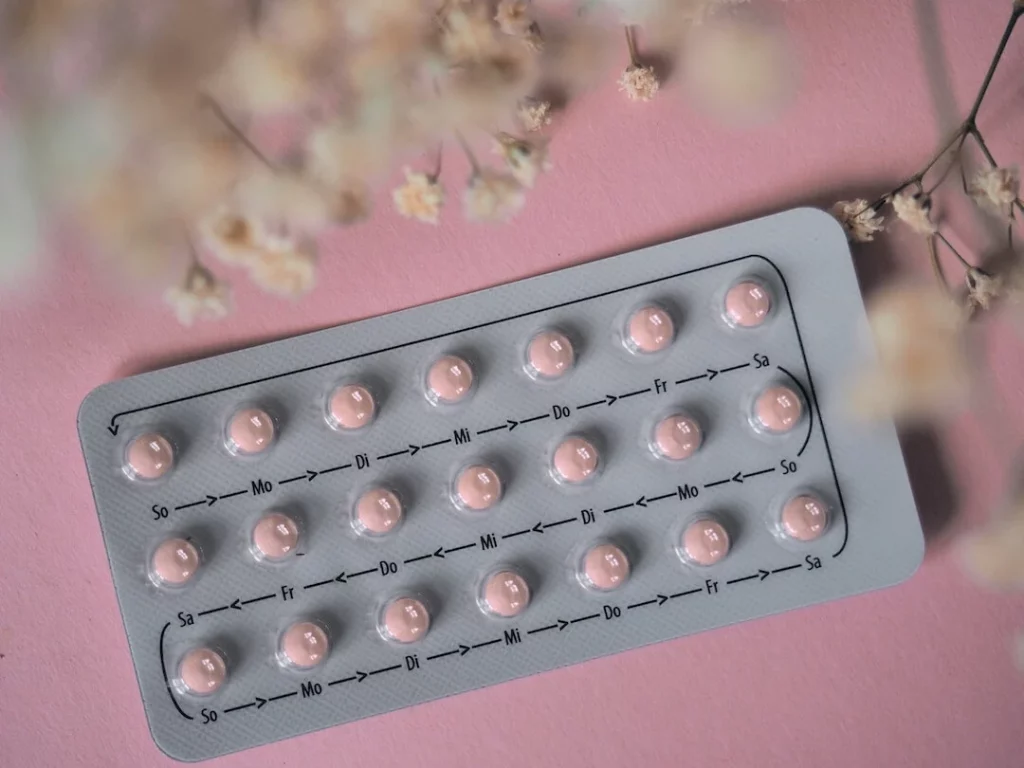Around 20% of women have experienced having a pelvic mass, such as an ovarian cyst. While these cysts come and go unnoticed, it is pretty hard to ignore them once they rupture inside your body. Ovarian cyst rupture treatment will be fully explored in this article.
Treatment for ovarian cyst rupture depends on the type of cyst and level of pain or symptoms. Simple cysts that cause mild symptoms are treatable at home with pain medicines. Complex ones that lead to blood or fluid loss need hospital care, IV treatment, and even surgery for severe cases.
We will talk about all the essential information related to ovarian cysts including treatment options. Keep reading to know how to manage your situation in case you ever find yourself with an ovarian cyst rupture.
Table of Contents
- What Is an ovarian cyst?
- What is an ovarian cyst rupture?
- What is the treatment for ovarian cyst rupture?
- Final thoughts
What Is an Ovarian Cyst?
Most women have two ovaries. The ovaries take part in processes such as menstruation, releasing eggs, and balancing hormones.
Ovarian cysts are fluid-filled sacs found in the ovaries. They can be simple or complex.
Simple ovarian cysts are often harmless and easier to manage whereas complex cysts can cause severe symptoms and may need hospital care or surgery.
Ovarian cysts are often discovered accidentally during physical exams. Common symptoms include:
- Frequent urination
- Pain during sex
- Bloating
- Abnormal periods
- Fertility issues
What Are the Causes of Ovarian Cysts?
Ovarian cysts can be classified based on their cause. Functional cysts generally occur due to the menstrual cycle, while pathological ovarian cysts form due to abnormal cell replication.
Cysts are caused by various factors such as pregnancy, hormonal problems, and pelvic infections They can also develop due to an underlying condition, such as endometriosis or Polycystic Ovary Syndrome (PCOS).
Cysts commonly form when an egg cell is not released, or a follicle sac fails to shrink.
Certain factors may also increase your chances of having ovarian cysts. These include:
- Cigarette Smoking
- Infertility Treatment
- Tubal Ligation
- Hypothyroidism
- Tamoxifen (a drug used to treat breast cancer)
- Maternal Gonadotropins (human chorionic gonadotropin is produced by pregnant women and detected via a pregnancy test)
The cause of ovarian cysts can affect their treatment. Functional cysts caused by the failure to release an egg can often be managed at home. However, those caused by underlying conditions like PCOS may need other measures, such as birth control treatment.

Are Ovarian Cysts Cancerous?
Most ovarian cysts are harmless and non-cancerous (benign). However, the risk of having malignant cysts increases after menopause. Thus, menopausal women with ovarian cysts need to monitor themselves if they develop them. This can be done through ultrasounds and blood tests.
If a cyst is malignant, a different course of treatment suited for cancer may be necessary. You would also need to see an oncologist.
What Is an Ovarian Cyst Rupture?
An ovarian cyst rupture is when a cyst in the ovary breaks open or bursts. Its symptoms can include abdominal pain, nausea, dizziness, weakness, fever, and rapid breathing. If you experience any of these, seek medical care.
How Is an Ovarian Cyst Rupture Diagnosed?
Because ovarian cyst rupture can present as common symptoms such as nausea or abdominal pain, it is crucial to ensure that no other condition, such as appendicitis, is causing these similar effects.
To diagnose an ovarian cyst rupture effectively, a patient must undergo various tests. These tests include ultrasound, pregnancy, blood, urine, vaginal culture, and CT scan.
The results help rule out other conditions that may cause similar symptoms.

What Is the Treatment for Ovarian Cyst Rupture?
Ovarian cyst rupture is managed accordingly. This means, mild cases require minimal treatment and may be handled at home.
The treatment for an ovarian cyst rupture depends on the symptoms, type of cyst, and the patient’s condition. You can treat simple, benign cysts with mild symptoms at home using pain medicines. However, complex cysts need hospital care or surgery while malignant cysts need further treatment.
1. Pain Medicines for Mild Symptoms of Simple Ovarian Cyst Rupture
You can treat simple or functional cysts at home with pain medication. However, you would have to visit a doctor beforehand to assess your condition and determine the best course of treatment. Depending on your needs, they can prescribe over-the-counter or more potent medicines.
Still, even if you can recover at home, you need to monitor your symptoms. If the pain or your condition worsens, consult with a doctor for prompt treatment.
2. Hospital Care for Complex Cysts and Severe Symptoms
There are cases when a ruptured cyst cannot be managed with home treatment. Some of them can be too large and block blood flow. Others can cause severe bleeding, which will require a blood transfer. An IV treatment would be needed for people who lose fluids.
While in hospital, the doctor will examine your symptoms and vital signs, such as heart rate and red blood cell levels. Hospital stays can last for a day or more, depending on whether bleeding stops or symptoms worsen.
3. Surgery for Severe Cases of Ovarian Cyst Rupture
Although surgery rarely happens with ovarian cysts, it may be necessary in severe cases. Examples of situations that would need surgery include the following:
- Large cysts (these can block blood flow)
- Abnormally-appearing sacs
- Cysts that grow over time
- Pain-causing cysts
There are two kinds of procedures that doctors can do:
- This is for small, benign cysts. It only requires a small incision
- This uses a larger incision to remove a bigger or possibly malignant cyst. After removal, the cyst can be used to determine whether it is caused by cancer or not
4. Other Forms of Treatment for Ovarian Cysts
Doctors often prescribe hormonal birth control treatment for women with conditions such as PCOS that lead them to develop ovarian cysts. This helps prevent or reduce ovulation, which lowers the chances of forming cysts.
If you recall, cysts can form after ovulation, when a follicle sac fails to release an egg or when the sac fails to shrink.

Final Thoughts
More often than not, ovarian cysts and cyst ruptures are a normal part of a woman’s cycle. They can come and go unnoticed or cause mild to moderate symptoms that are treatable at home or the hospital.
Your doctor may prescribe pain medicines to alleviate pain. Blood transfer and IV treatment are reserved for severe bleeding or fluid loss cases. Many people rarely need surgery but it does happen in severe cases. Also, a doctor may prescribe birth control for women who develop cysts more often than usual.
Thanks for reading!
If you enjoyed this story, you may want to check out Does Infertility Last Forever? Find Solutions To Infertility.
Sources
- UC San Diego Health: Treating a Ruptured Ovarian Cyst
- NHS: Ovarian cyst
- Office on Women’s Health: Ovarian cysts
- University of Rochester Medical Center: Management of Ruptured Ovarian Cyst
- National Institute of Health: Ovarian Cyst
- Medline Plus: Ovarian cysts
- Medline Plus: Tamoxifen
- Britannica: Gonadotropin